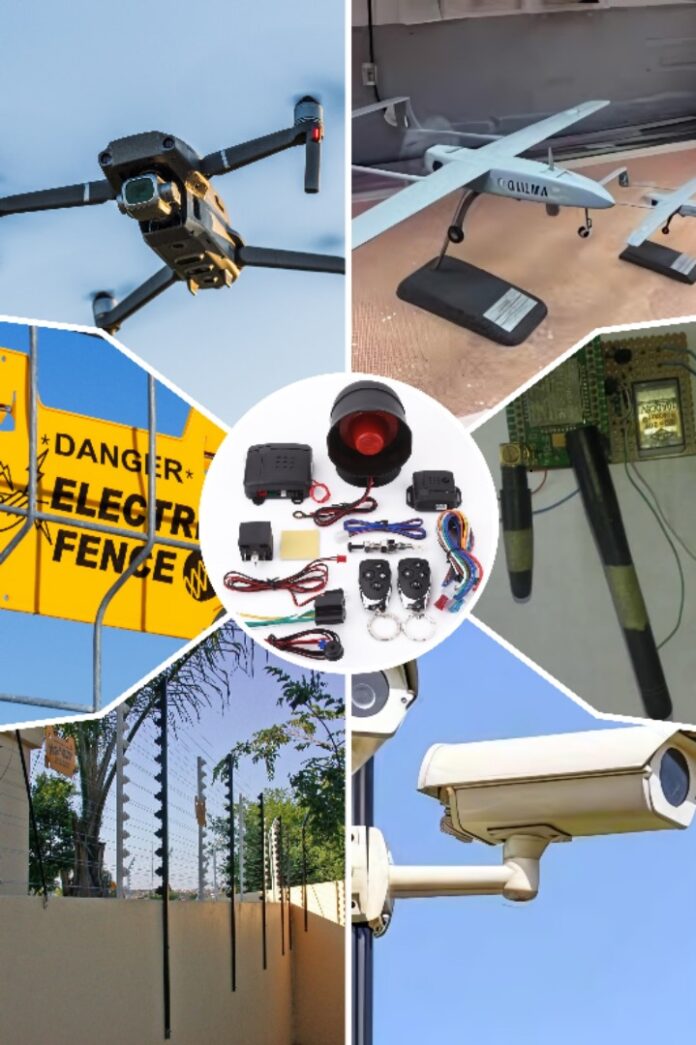Addressing Security Challenges in Nigeria: Practical Solutions for a Safer Future
By Bathlomew A. Ebika
Nigeria, the giant of Africa with its unique security challenges, faces an urgent need for innovative yet practical solutions to enhance safety and mitigate threats. With ongoing issues such as highway kidnappings, terrorism, and rural violence, adopting advanced technologies tailored to local conditions can significantly improve public safety.
This article explores realistic approaches to addressing these challenges using modern technology and strategic implementations.
Advanced Sensors in Commercial Vehicles
One effective strategy to enhance road safety and prevent kidnappings on highways is equipping commercial buses with advanced sensors. By installing systems that can detect and alert drivers about potential threats or obstacles 5 miles ahead, buses can navigate more safely and avoid areas prone to criminal activity.
These sensors can provide real-time information on road conditions, potential hazards, and the presence of unauthorized individuals or vehicles, thereby enabling drivers to take precautionary measures or alert authorities if necessary.
IoT for Tracking Terrorists
The Internet of Things (IoT) offers powerful capabilities for tracking and locating terrorists hiding in remote areas.
By deploying IoT-enabled devices and sensors in forests and other potential hideouts, security agencies can monitor environmental conditions and movement patterns with high precision. These devices can relay real-time data to central command centers, facilitating rapid response and targeted operations. For example, IoT sensors could be placed along known routes or in areas of high activity to detect unusual movements or gatherings, helping to pinpoint terrorist locations and enhance the effectiveness of search and rescue operations.
Electric Fencing for Schools and Communities
Read Also:
To protect schools, churches, and communities from terrorist attacks, advanced electric fencing can be a viable solution. This fencing technology can be designed to create a secure perimeter around these vulnerable areas, deterring unauthorized access while allowing safe entry for community members.
The electric fence can be equipped with sensors that trigger alarms when breached, notifying security personnel and enabling a swift response. This approach not only provides physical security but also integrates with other surveillance systems to enhance overall safety.
Low-Cost Fighter Drones for Rural Protection
In rural areas, where farmers and communities often face threats from armed groups, low-cost fighter drones can offer an innovative defense mechanism. These drones can be deployed to patrol large agricultural areas and provide real-time surveillance of potential threats.
By using drones equipped with cameras and sensors, security forces can monitor farmlands, detect intruders, and respond to emergencies more effectively.
Additionally, drones can be used to deliver alerts or even non-lethal deterrents to fend off intruders, thereby reducing the risk of violence and protecting livelihoods.
Conclusion
Addressing Nigeria’s security challenges requires practical and adaptable solutions that leverage modern technology while considering the country’s developmental context. Advanced sensors in commercial vehicles, IoT for tracking terrorists, electric fencing for community protection, and low-cost fighter drones for rural security represent innovative approaches to enhancing safety and security. By implementing these technologies, Nigeria can take significant strides towards reducing violence and improving public safety, ensuring a more secure environment for its citizens.
Author: Bathlomew A. Ebika, B.Eng, MSc, R.Eng, NSE, MIEEE, MISA, Co-Investigator-NASA USRC 2023, NSF-HAMMER Researcher, Engineer 1-Biomedical Engineering – Case Western Reserve University, United States National Interest Waiver (NIW) Recipient-Exceptional Ability-USCIS, TÜV Certified, KHDA Certified, Founder and Pioneer-Gifted People Network (GPN).




